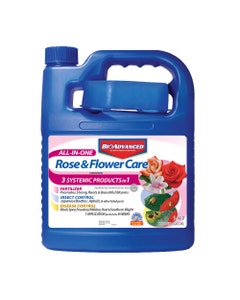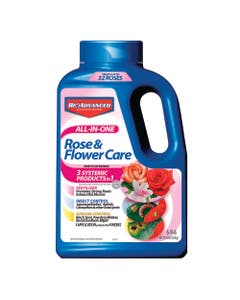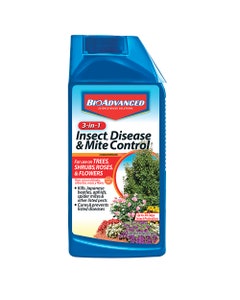

Aphids
Aphids are very small, pear-shaped soft-bodied insects that commonly infest many garden plants, especially roses and vegetables. Often called "Plant Lice", an aphid ranges from less than 1/8 to 1/4 inch long. They come in many colors, but green, black and yellow are common.
Damage
Aphids suck the juices out of new shoots, buds and leaves. An aphid causes new growth to be curled, stunted or puckered. Leaves can turn yellow and drop. As they feed, Aphids can also transmit diseases from one plant to another. Aphids produce honeydew, a sweet, sticky substance that hosts black sooty mold and attracts some Ants. If you miss the pests clustered along new growth, you may see Black Mold on lower leaves from fungus growing on deposited honeydew. Or you might see Ants racing up and down stems feeding on the sweet honeydew. In some cases, controlling Ants can also help control Aphids. Aphids over-winter on plant parts or debris (survive the winter) and they come out in the spring, where an aphid can live in large clusters, especially on new growth. In these large clusters, some Aphids can develop wings and move on to other plants. They are most damaging in the spring and summer.
Location
Aphids are found throughout the United States.
Similar or Related Pests
Leafhoppers, Adelgids and Whiteflies
Cultural Solutions
- A strong spray of water from a hose can remove Aphids from plant leaves.
- Avoid over fertilizing.




